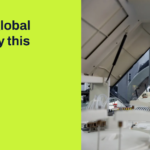Vaccines: How They Work and Their Impact on Global Health
Vaccines are among humanity’s most significant medical breakthroughs. They’ve played a pivotal role in preventing infectious diseases and have helped shape modern health standards across the globe. To understand their impact, it’s essential to grasp how they work and why they’re crucial for global health.
How Vaccines Work: A Simple Explanation
At their core, vaccines are designed to train the immune system. Think of them as a practice drill for your body’s defense mechanism. Here’s how they generally work:
- Introduction of Antigens: Vaccines introduce a harmless part of a pathogen—usually a weakened or inactive form of the virus or bacteria, or a piece of it, like a protein. These components are called antigens.
- Immune Response Activation: When the immune system encounters these antigens, it responds by producing antibodies and activating other immune cells. This process helps the body recognize and fight the pathogen in the future.
- Memory Formation: After this initial response, the immune system retains a memory of the pathogen. This means if you’re exposed to the actual disease later, your body can mount a quicker and more effective defense.
This training process is akin to a fire drill: you practice to prepare, so if a real emergency occurs, you’re ready.
The Global Impact of Vaccines

The impact of vaccines on global health is profound and far-reaching. Let’s explore a few key areas:
- Disease Eradication: Vaccines have eradicated smallpox, a disease that once killed millions annually. The last case was reported in 1977, and in 1980, the World Health Organization declared smallpox eradicated. This milestone underscores the potential of vaccines to eliminate deadly diseases.
- Reduction in Mortality: Vaccines have significantly reduced the mortality rates of many diseases. For instance, the introduction of the polio vaccine led to a dramatic decrease in cases. Polio, which once paralyzed thousands of children each year, is now close to being eradicated globally.
- Herd Immunity: Vaccination doesn’t just protect individuals; it helps protect communities through herd immunity. When a large portion of the population is vaccinated, the spread of disease is curtailed, even protecting those who cannot be vaccinated due to medical reasons.
- Economic Benefits: The economic impact of vaccines is substantial. They reduce healthcare costs by preventing diseases and reduce the economic burden on families and health systems. For example, the rotavirus vaccine has significantly decreased hospitalizations and healthcare costs related to severe diarrhea in children.
Current Affairs and Trends in Vaccination
The COVID-19 pandemic has been a recent focal point for vaccine development and distribution, highlighting both the importance and the challenges of vaccination.
- COVID-19 Vaccines: The rapid development of COVID-19 vaccines demonstrated unprecedented scientific collaboration and technological advancements. mRNA vaccines, like those from Pfizer-BioNTech and Moderna, have set new standards in vaccine technology. These vaccines have been highly effective in reducing severe illness and death, showcasing how innovation can address urgent global health crises.
- Vaccine Equity: One of the critical issues during the COVID-19 pandemic has been vaccine equity. Access to vaccines has been uneven, with wealthier nations securing the majority of doses early on, leaving lower-income countries struggling to obtain sufficient supplies. Organizations like COVAX have worked to address these disparities, but achieving global vaccine equity remains a significant challenge.
- Vaccine Hesitancy: Vaccine hesitancy is an ongoing concern. Misinformation and distrust can lead to lower vaccination rates and threaten public health. Addressing these issues requires clear communication, education, and engagement with communities to build trust and promote the benefits of vaccination.
- Future Vaccines and Innovations: The future of vaccines holds exciting possibilities. Researchers are exploring vaccines for a range of diseases beyond infectious ones, including cancer and autoimmune conditions. Advances in vaccine platforms, such as nanoparticle vaccines and oral vaccines, promise to expand the reach and efficacy of immunization.
Challenges and Considerations
Despite their success, vaccines face challenges that need ongoing attention:
- Distribution and Logistics: Ensuring that vaccines reach remote or underserved areas is crucial. Cold storage requirements, distribution networks, and infrastructure can all impact vaccine delivery.
- Public Health Education: Educating the public about the safety and benefits of vaccines is essential. Clear, transparent communication from health authorities and the scientific community helps build trust and counteract misinformation.
- Emerging Diseases: The global interconnectedness of our world means that new diseases can emerge and spread rapidly. Continued investment in research and development is crucial to stay ahead of potential threats and ensure that vaccines are developed and distributed swiftly.
Conclusion

Vaccines are a cornerstone of modern public health, saving millions of lives each year and preventing the spread of infectious diseases. They work by training the immune system to recognize and combat pathogens, leading to lasting protection and the potential eradication of diseases.
The impact of vaccines on global health has been monumental, from eradicating smallpox to significantly reducing the burden of diseases like polio and measles. However, challenges such as vaccine equity, hesitancy, and distribution remain. As we look to the future, continued innovation, equitable access, and robust public health strategies will be vital in harnessing the full potential of vaccines to protect and improve global health.
In a world where health threats are constantly evolving, vaccines represent a powerful tool in our arsenal. By understanding their mechanisms, appreciating their impact, and addressing the challenges they face, we can continue to build a healthier future for all.





